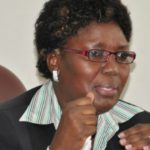Uganda will host the 16th African Fine Coffee Conference and Exhibition, from February 14-16, 2018, providing local dealers a unique opportunity to market their coffee to international buyers.
“Over 1,500 international industry traders, producers, buyers and professionals will converge in Kampala for 3 days of intense discussions on policy and trade development across the African Coffee Value Chain,” the Uganda Coffee Development Authority (UCDA) says in a public notice.
Prime Minister, Dr. Ruhakana Rugunda is expected to preside over the conference’s opening ceremony at the Kampala Serena Hotel.
According to the organizers, the conference is a ‘buyer-oriented event’ that will bring together stakeholders from all over the world to build key trading relationships and discuss issues impacting on production, trading environment and policy interventions necessary to grow the coffee industry worldwide.
The conference and exhibition in Uganda follows the recent ones held in 2016 and 2017 in Dar-es-salaam, Tanzania and Addis Ababa, Ethiopia, respectively.
Delegates will also participate in a three- day pre-conference coffee safari to selected coffee farms. Over 100 exhibitors-local and international are expected to showcase their coffee products, machinery and packaging amongst others.
Major types of Uganda coffee
Blessed with two rainy seasons, good soils and climatic conditions, Uganda provides the world with a steady supply of Arabica and Robusta coffees throughout the year. The country’s high altitudes and cool equatorial climate promote slow ripening and give rise to some of the best coffees produced by Africa’s smallholder farmers.
Production
With an average export of 3.5 million 60-kg bags in the past five years, Uganda is Africa’s second-biggest coffee producer behind Ethiopia, and the continent’s largest Robusta exporter. “The country has over a century-long tradition of coffee production. The crop is grown by smallholder farmers in most of the country, with an exception of the arid North-East. It is estimated that one third of all rural households, or roughly 1.2 million families, are involved in producing coffee,” says a recent brief on the crop.
Growing coffee is an important strategy for rural poor households in Uganda to climb out of poverty as they create wealth. Statistics from UCDA shows that farmers grow on average between 0.5 and 3 acres of coffee, and often intercrop it with banana plants and shade trees to mitigate the impact of climate change seen in increased temperatures irregular rainfall on the crop production.
Robusta, which is native to the humid rainforests on the Western borders of Uganda, is grown at altitudes of 1,200 to 1,500 meters above sea level throughout the country. As a result of the high altitudes at which it is grown, Uganda’s Robusta is often classed amongst the world’s finest Robusta coffees.
But Robusta production was hard hit by an epidemic of Coffee Wilt Disease (CWD) that eliminated half of the Robusta tree population. With the recent release of CWD resistant varieties, Uganda’s coffee sector is working hard to multiply these using both clonal and tissue culture approaches in order to replant the lost acreages as soon as possible. “We expect to see the benefits of this in terms of a significant increase in Robusta production within the next five to ten years,” says a local coffee production expert.
On the other hand, Uganda’s Arabica coffee is produced in the mountainous regions on the extreme ends of the country. “We have seen a steady increase of the export share of Arabica over the past two decades from less than 10% to 20-25% of total exports,” says UCDA. The washed Arabica coffees are sourced from the slopes of Mt. Elgon, a volcanic mountain in the East and from the West-Nile (Paidha) bordering DR Congo. The natural Arabicas, or Drugars, come from the foot slopes of the snow-capped Rwenzori Mountains in the west.
Cupping characteristics
Baristas say Ugandan Robusta has a rich aroma, a full body with winey flavours and is just the perfect finish for espresso blends. The natural Arabica, Drugar, is described as sweet with fruity notes and has a low acidity, whereas the washed Arabica has a rich full body, good aroma and well balanced citrus flavours.
The country’s year-on-year coffee earnings jumped 66.71 percent to reach US$544.59 million in the year 2016/17 compared to US$326.68 million the country earned in 2015/16, official records show.
President Yoweri Museveni last year launched the Coffee Roadmap aimed at increasing coffee exports to at least 20 million 60-kg bags per year by 2025, targeting the market in China.







